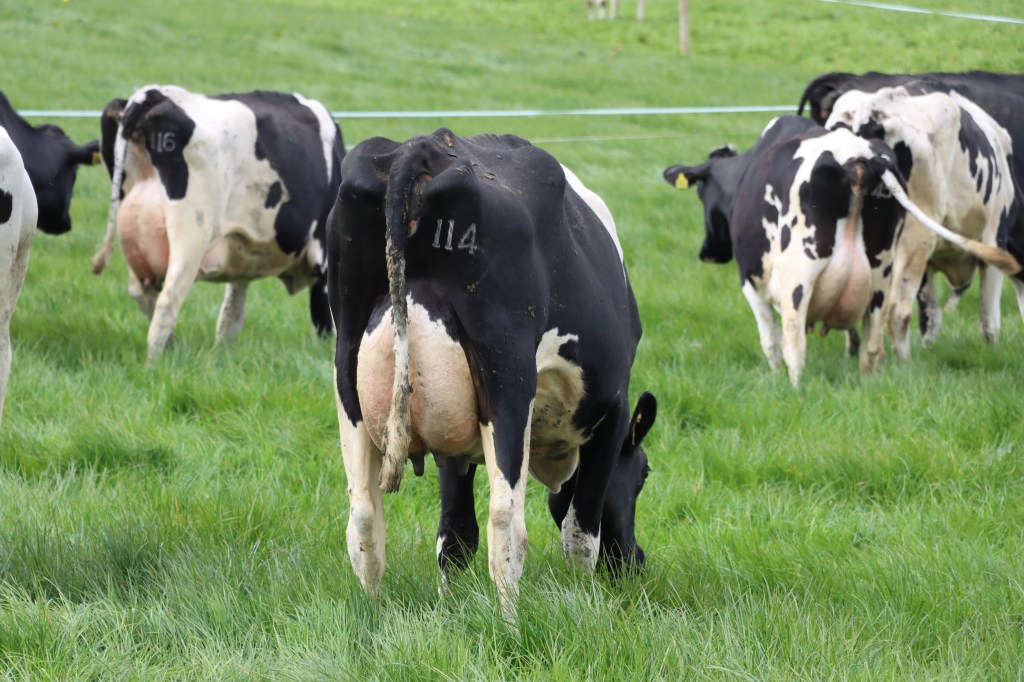What is rumination?
Rumination is a voluntary process, controlled by a cow’s internal environment, to process partially digested feed, known as cud.
When a cow ruminates, they will regurgitate their feed, re-chew it and re-swallow it.
The rumination is controlled by the reticulorumen, inside the cow, but is also influenced by their physical and social environments.
Farmers will monitor the rumination of each of their cows as it is a great indicator of their overall well-being.
If a cow stops or reduces this process, it is usually a sign of illness, disease, or stress. Monitoring this can help farmers to act on any health issues much quicker, minimising the risk or impact on the cow.
How long do cows ruminate for per day?
It is a natural and essential behaviour for a cow to spend at least one third of its day ruminating.
Studies have found that cows will do about 80% of their ruminating whilst lying down. For this reason, it is essential that farmers allow their herd plenty of rest time, and a calm and comfortable environment for them to do it in.
The duration of rumination can vary in cows and can be affected by various different factors, including age, diet and health status.
A cow’s diet can significantly impact how much a cow ruminates, depending on the composition and quality of their feed.
High-fibre, fresh grass requires more chewing time, and will extend their ruminating duration.
Younger cows will usually ruminate for a shorter time, compared to adult cows. The time they spend ruminating will increase as they grow and age.
If a cow is experiencing health issues, such as dental problems or gastrointestinal disorders, they will likely ruminate less.
How can you monitor your herd’s rumination?
New herd-monitoring technology has the ability to monitor the rumination patterns of your animals.
The Genus ABS solution, Ingenuity, was released in 2022 and offers rumination monitoring, heat detection, expert service, and numerous other benefits.






